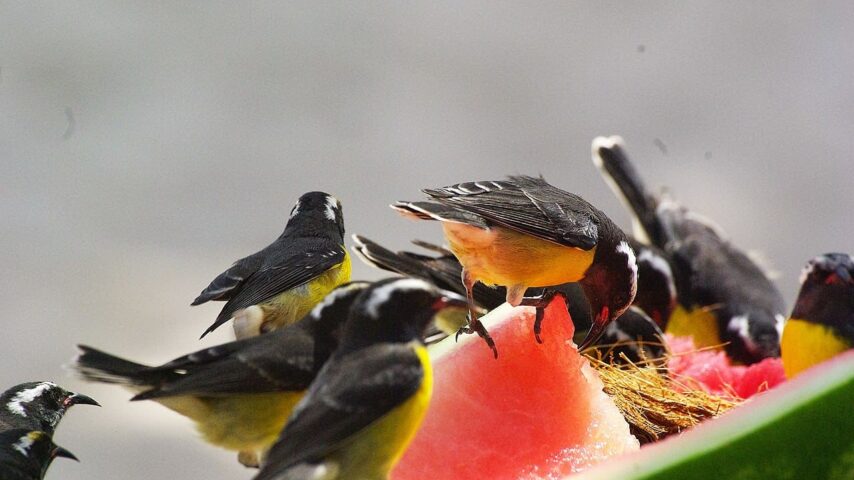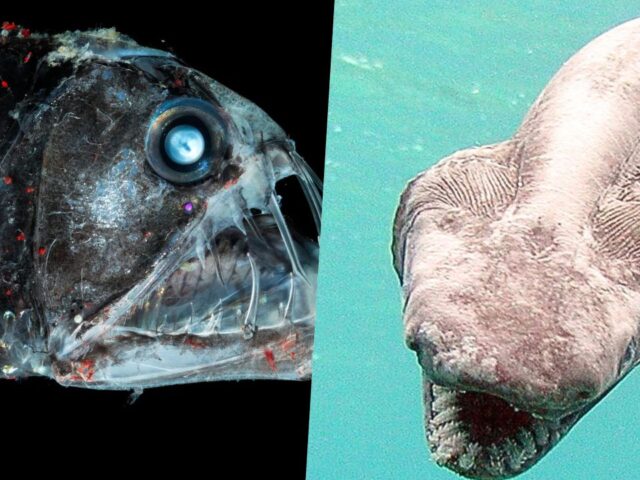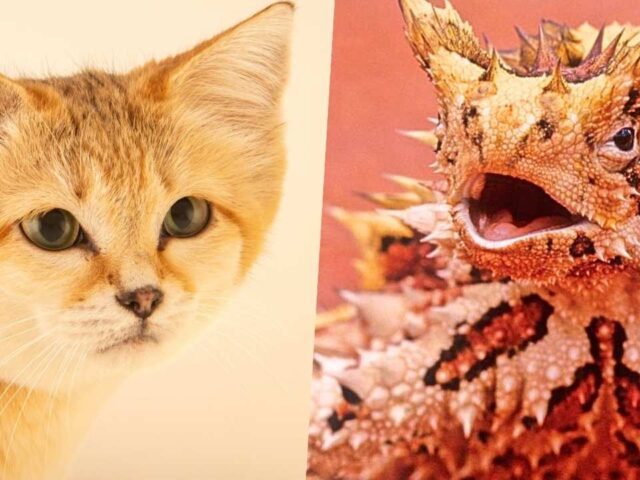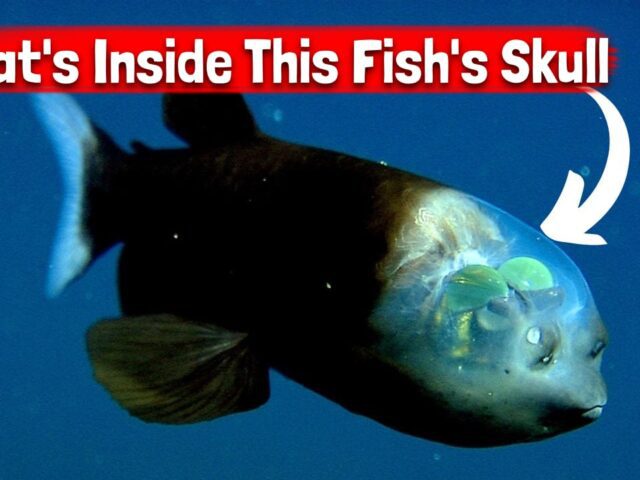Watermelons are not only a favorite summer treat for humans but also a nutritious and hydrating snack for our feathered friends. In this article, we will explore the question “can birds eat watermelon”, the benefits of watermelon, which bird species enjoy it, and how to safely serve it as part of a balanced avian diet.
Table of Contents
- 1. Key Takeaways on “Can birds eat watermelon”
- 2. Watermelon And Birds: Safe Consumption And Nutritional Value
- 3. Identifying The Birds That Love Watermelon
- 4. Preparing And Feeding Watermelon To Birds
- 4.1 Preparing Watermelon For Birds
- 4.2 Serving Sizes And Frequency
- 4.3 Precautions To Take While Feeding Watermelon To Birds
- 5. Other Fruits Birds Can Safely Eat
- 6. Conclusion: Feeding Watermelon To Birds Is Safe And Healthy, But Should Be Done In Moderation And As A Supplement To A Balanced Diet
- 7. FAQs
Key Takeaways on “Can birds eat watermelon”
- Birds can safely eat watermelon and benefit from its high moisture content, energy, and various vitamins such as vitamin A and C. Watermelon seeds are also highly nutritious for birds.
- Many species of birds enjoy eating watermelon, including songbirds, woodpeckers, orioles, jays and doves. Attracting birds to your backyard with watermelon is a great option.
- When feeding watermelon to birds, it’s important to remove the rind and cut the fruit into small pieces or thin slices so that it’s easy for them to eat. It should be served in moderation as a supplement to their balanced diet alongside other safe fruits like apples, kiwi fruit and pears.
- Precautions must be taken when serving watermelons to ensure safety; proper preparation/ washing of fruits is essential while removing all seeds is necessary since they could cause choking hazards if not properly removed. Freshness matters when serving watermelons because bacteria growth due to standing time could make your bird sick.
Watermelon And Birds: Safe Consumption And Nutritional Value
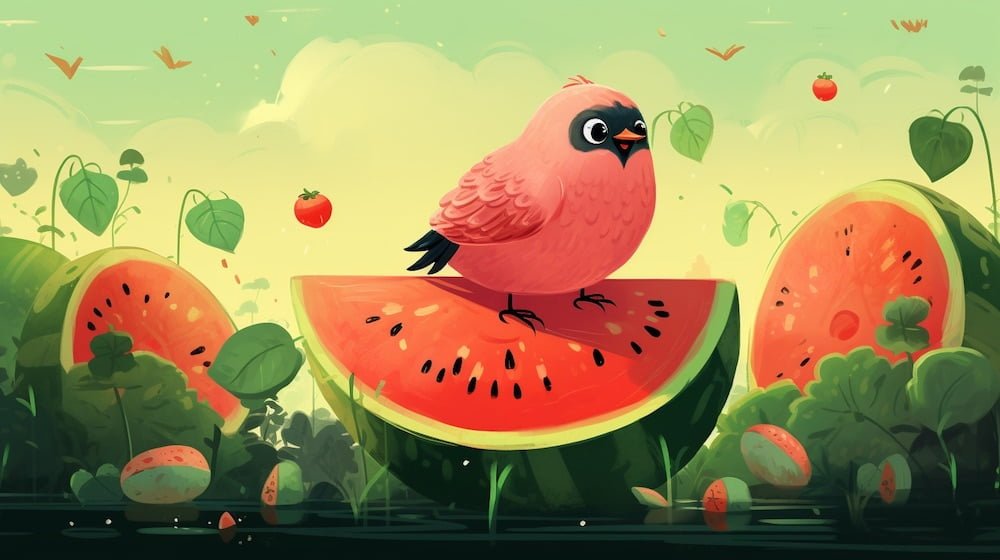
Birds can safely consume watermelon and benefit from its high moisture content, energy, and various vitamins such as vitamin A and C.
Nutritional Benefits Of Watermelon For Birds
Watermelon boasts an array of nutritional benefits that can greatly contribute to the health and well-being of birds. Rich in vitamins A, B6, and C, this delicious fruit helps maintain optimal organ function and bolsters the immune system in avian creatures.
Vitamin A is essential for promoting healthy vision, while vitamin B6 aids in numerous metabolic processes such as protein synthesis.
A lesser-known fact about watermelons is that their seeds are quite nutritious for birds like parrots or pigeons. These seeds contain beneficial proteins and essential nutrients necessary for maintaining overall health.
Safe Consumption Of Watermelon For Birds
Watermelon is a safe and healthy fruit for birds to consume. It contains high levels of moisture, which helps to keep birds hydrated during hot weather.
In addition, watermelon provides essential nutrients for birds such as vitamins A, B6, and C, folic acid, potassium and antioxidants that help support their immune system and organ health.
When feeding watermelon to birds, it’s important to remove the rind and cut the fruit into small pieces or thin slices so that it’s easy for them to eat.
You can feed your bird watermelon as an occasional treat or supplement it in their diet during summer months when watermelons are abundant in most grocery stores.
However, like with any food item – moderation is key when serving fruits – even those deemed “safe”.
Also Read: Can Birds Eat Chia Seeds? Is it Safe for Birds? (Ultimate Guide)
Identifying The Birds That Love Watermelon
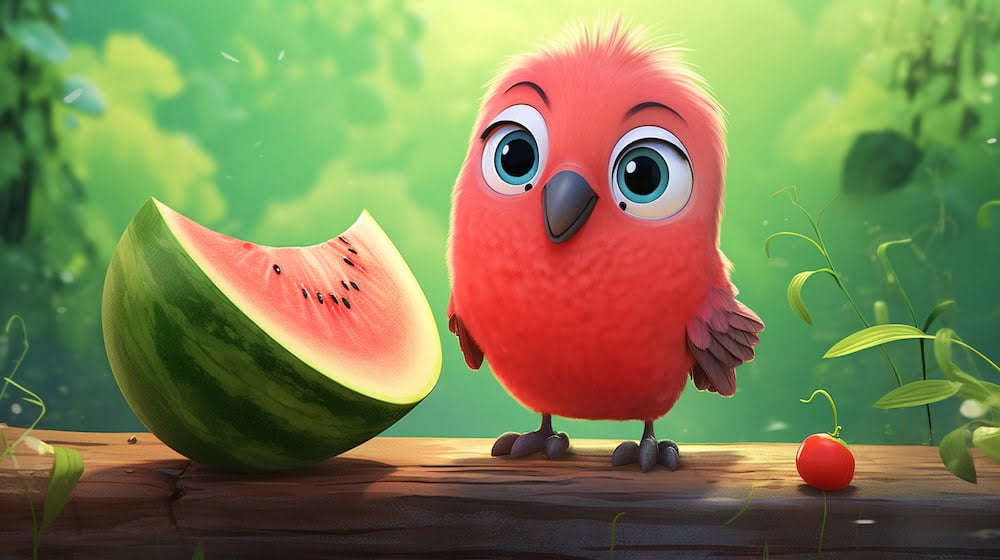
The birds that love watermelon include robins, finches, grosbeaks, thrashers, and mockingbirds – find out how to attract them to your backyard with this fun fruit!
Bird Species That Enjoy Watermelon
Many species of birds love to eat watermelon, especially during the hot summer months. Here are some birds that enjoy this juicy fruit:
1. Songbirds: Many different types of songbirds, such as finches, sparrows, and thrushes, will happily munch on watermelon.
2. Woodpeckers: These birds may seem like they prefer insects or nuts for their diets, but they also enjoy a sweet snack like watermelon every once in a while.
3. Orioles: This bird species is known for having a sweet tooth and loves fruits like oranges and grape jelly. Watermelon is another favorite treat for them.
4. Jays: Blue jays and other members of the jay family have a varied diet that includes fruits like berries and cherries. They also enjoy snacking on watermelon.
5. Doves: Many dove species can be found in backyards across the United States, and they enjoy feeding on seeds and grains as well as fruits like watermelon.
Overall, most garden birds will gladly eat watermelon if given the opportunity. Just make sure to prepare it appropriately and serve it in moderation alongside a balanced diet of bird-friendly foods.
Attracting Birds To Your Backyard With Watermelon
If you want to attract birds to your backyard, watermelon is a great option. Many bird species enjoy the sweet and juicy fruit during the summer months.
Watermelon is also an excellent source of hydration for birds, especially during hot weather when they need more moisture. In addition, it is packed with essential nutrients that support immune system function and organ health.
Preparing And Feeding Watermelon To Birds
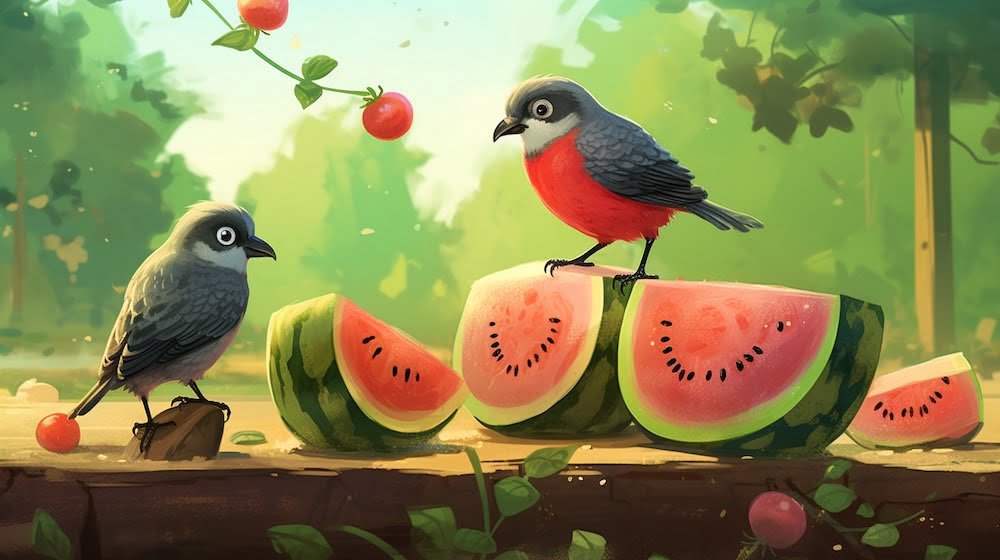
To prepare watermelon for birds, remove the rind and cut it into small pieces to make it easier for them to eat, serve it fresh and in moderation as a supplement to their balanced diet.
Preparing Watermelon For Birds
Watermelon is an excellent choice of fruit to feed your birds as long as it is properly prepared. Follow these simple steps to prepare watermelon for your feathered friends:
1. Choose a ripe watermelon that is free from any bruises or soft spots.
2. Cut the watermelon into small pieces that are easy for your birds to eat.
3. Remove all the seeds and rind from the watermelon pieces as they are difficult for birds to digest.
4. Wash the watermelon thoroughly before cutting it up into small pieces.
5. Serve the prepared watermelon in a clean feeding dish or scatter it on a feeding tray.
6. Offer small amounts of watermelon at first, gradually increasing the amount as you monitor your bird’s reaction.
It’s essential to note that while watermelon is safe for birds, it should only be fed in moderation and as a supplement to their regular diet.
Additionally, you should never offer birds any fruit or food that has gone bad or moldy. Follow these guidelines, and your bird will have no problem enjoying this refreshing summer treat!
Serving Sizes And Frequency
When serving watermelon to birds, it’s important to keep in mind the appropriate serving size and frequency. While watermelon is a safe and healthy treat for birds, it should be fed to them in moderation as a supplement to their regular diet.
A small amount of fresh, seedless watermelon can be given as a treat once or twice a week. It’s important not to overdo it with too much fruit as this can lead to nutritional imbalances and health problems for your bird.
To ensure that your feathered friends are getting everything they need from their diet, it’s also recommended that you consult with an avian veterinarian who can provide expert guidance on nutrition and diet planning for pet birds.
In addition to feeding watermelon occasionally, there are other fruits that birds can safely enjoy including honeydew melon and cantaloupe.
Precautions To Take While Feeding Watermelon To Birds
To ensure that you are feeding watermelon to birds in the safest possible way, it is important to take precautions. Below are some key precautions to keep in mind:
1. Remove the seeds: While watermelon seeds are a great source of nutrition for birds, they can be a choking hazard if not properly removed. Make sure to remove the seeds before serving watermelon to your feathered friends.
2. Don’t overdo it: While watermelon is safe for birds to consume, it should be served in moderation and as a supplement to a balanced diet. Too much fruit can upset their digestive system.
3. Wash thoroughly: It is important to wash all fruits before serving them to birds in order to remove any pesticides or other harmful chemicals that may be present on their skin.
4. Serve fresh: Watermelon should always be served fresh and not left out for too long, as this can cause bacteria growth that could make your bird sick.
5. Watch for allergies: As with any new food, monitor your bird’s reaction when first introducing watermelon into their diet. If you notice any signs of allergic reaction (such as swelling or difficulty breathing), stop feeding them watermelon immediately and contact your veterinarian.
By following these precautions, you can safely serve watermelon and other fruits to your feathered friends without worrying about potential health risks.
Other Fruits Birds Can Safely Eat
Birds can also safely consume fruits such as apples, bananas, berries, grapes, and oranges in addition to watermelon.
List Of Safe Fruits For Birds
Birds enjoy a variety of fruits, but not all fruits are safe for them to eat. Here is a list of safe fruits that you can feed your feathered friends:
1. Apples: Apples are an excellent source of vitamins and minerals for birds.
2. Bananas: Bananas are loaded with potassium and fiber, making them a healthy snack for birds.
3. Berries: Strawberries, raspberries, and blueberries are high in antioxidants which help boost the immune system of birds.
4. Grapes: Grapes contain natural sugars and water which provide energy and hydration to birds.
5. Mangoes: Mangoes are rich in vitamin A and C which promotes healthy skin and organ health in birds.
6. Oranges: Oranges contain vitamin C which helps boost the immune system of birds.
7. Pears: Pears contain fiber that aids digestion in birds.
8. Pineapple: Pineapples have bromelain, an enzyme that helps break down protein in bird’s diets.
9. Plum: Plums have antioxidants that promote cell health and boost immunity in birds.
It is important to note that while fruits offer nutritional benefits to birds, they should be served as supplements to a balanced diet and given in moderation based on the size of the bird.
Nutritional Benefits Of Feeding Fruits To Birds
Feeding fruits to birds has numerous nutritional benefits that boost their overall health and wellness. Fruits provide birds with essential vitamins, minerals, and fiber required for balanced nutrition while strengthening their immune systems.
For instance, avocados are rich in healthy fats while berries like blueberries contain antioxidants that help reduce the effects of aging on bird’s organs.
It is important to note that fruit should not be a replacement for regular meals but rather offered as additional supplements or treats in moderate amounts alongside a balanced diet.
Some safe fruits for birds include apples, cherries, grapes, kiwi fruit, mangoes, papayas among others providing an array of nutrients with low sugar levels compared to other sweet snacks often given to pets.
Conclusion: Feeding Watermelon To Birds Is Safe And Healthy, But Should Be Done In Moderation And As A Supplement To A Balanced Diet
In conclusion, birds can safely enjoy watermelon as part of their diet. Watermelon is a refreshing snack for birds and provides valuable hydration and nutrition. However, it should be fed in moderation alongside a balanced diet to ensure the bird’s overall health.
There are many other safe fruits that birds can eat too, including honeydew melon and cantaloupe.
FAQs
Birds are capable of eating watermelon seeds but it’s not recommended as these seeds can contain harmful chemicals if the fruit was sprayed with pesticides or other chemicals during cultivation.
Watermelon rind is safe for most types of birds to consume, but it’s important to ensure that the rind has been thoroughly washed and cut into small pieces before offering it to them.
Watermelons are rich in vitamins A and C, potassium, and dietary fiber which can help boost a bird’s immune system, improve digestion and promote overall good health.
The best way to serve watermelon for your pet bird is by slicing off small chunks without any skin or seeds attached. You may also want to mix the fruit with other fresh fruits such as berries or apples for added variety in their diet.
Sources:
Read More Interesting Articles:

